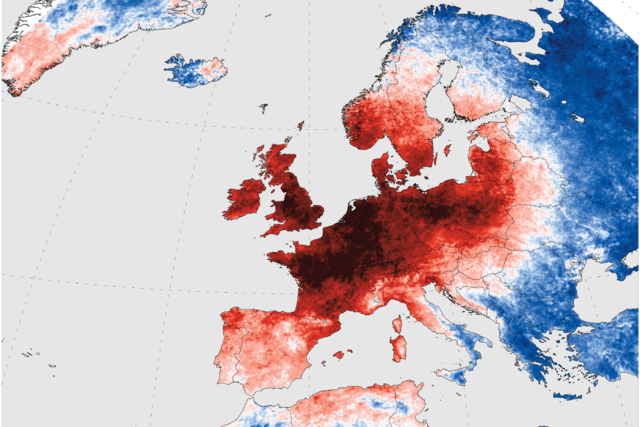
A comprehensive new study serves as a stark warning, revealing that the United Kingdom and Switzerland are poised to face the highest rise in “uncomfortably hot days.”
These nations are particularly vulnerable due to their prevailing architectural designs, which prioritise heat retention, rendering them “dangerously underprepared” for escalating temperatures.
“Even a small increase in the temperatures are actually showing a high relative change [in the number of uncomfortably hot times],” which can “make these countries more vulnerable to needing more cooling,” said lead study author Dr Nicole Miranda from Oxford University.
The study employs a sophisticated scientific criterion to define “uncomfortably hot days.” Essentially, it denotes a 24-hour period when the average temperature remains at least 18°C, although peaks could surge to 25°C, 30°C, or beyond. The researchers operated on the premise of a projected 2°C global warming, given that the universally agreed-upon target of limiting warming to 1.5°C appears increasingly elusive and might even be exceeded by 2027.
Anticipated global temperature trajectories could see the planet approach the 2°C threshold by mid-century and potentially reach around 2.7°C by 2100, according to Climate Action Tracker’s analysis of current policies.
The scientists emphasise an emerging “vicious cycle” stemming from efforts to cope with intensifying heat. Necessitated adaptations range from employing window shutters to block sunlight, enhancing ventilation, altering dress codes, introducing ceiling fans, to reconfiguring working hours—particularly for outdoor activities.
“By buying more air conditioners, we use more energy, leading to higher greenhouse gases and global warming, and then we buy more air conditioners again,” Dr Miranda told reporters.
“We need to break that cycle.”
Notably, the demand for cooling strategies has not assumed a prominent position in key policy documents, including the UK’s Net Zero Strategy and the Heat and Buildings strategy.
This study contributes to a growing chorus of criticism aimed at governments for inadequately addressing climate change impacts. In March, climate advisers cautioned the UK about its “critical exposure” to extreme heat, while recent research disclosed that last year’s heatwaves led to the deaths of over 60,000 individuals across Europe.
Expectedly, countries in Africa are projected to witness the most substantial absolute increase in uncomfortably hot periods. Surprisingly, however, northern European nations emerged with the highest relative increase, with eight out of the top ten countries in this category hailing from the region.
This phenomenon arises from buildings ill-equipped to counter rising temperatures, as dark roofs amplify heat absorption and windows lack protection against solar radiation.
Recognising the urgency of this situation, a parliamentary inquiry focusing on sustainable strategies to address heat-related challenges was launched by an environmental committee of Members of Parliament. Furthermore, an updated adaptation program, accounting for risks associated with 2°C warming, is slated for presentation to the parliament this year.
A government spokesperson said: “We are already considering the risks of overheating when building the homes of the future and will shortly publish a cross-government plan on adapting to climate change to strengthen our national security and protect the economy from higher costs in the future.”
Conservative MP Philip Dunne, the Environmental Audit Committee chairman, said today: “It is deeply concerning that the UK is among the three countries that will see the largest increase in temperature, particularly as we know that the UK is not yet adequately prepared for the consequences.
“Hotter summers are our new normal: we must learn to adapt to them and to mitigate the harms that extreme hot weather will bring.”
——————————————————————————
At Natural World Fund, we are passionate about stopping the decline in our wildlife.
The decline in our wildlife is shocking and frightening. Without much more support, many of the animals we know and love will continue in their decline towards extinction.
When you help to restore a patch of degraded land through rewilding to forests, meadows, or wetlands, you have a massive impact on the biodiversity at a local level. You give animals a home and food that they otherwise would not have had, and it has a positive snowball effect on the food chain.
We are convinced that this is much better for the UK than growing lots of fast-growing coniferous trees, solely to remove carbon, that don’t actually help our animals to thrive.
This is why we stand for restoring nature in the UK through responsible rewilding. For us, it is the right thing to do. Let’s do what’s right for nature!
Donate today at https://naturalworldfund.com/ and join in the solution!

